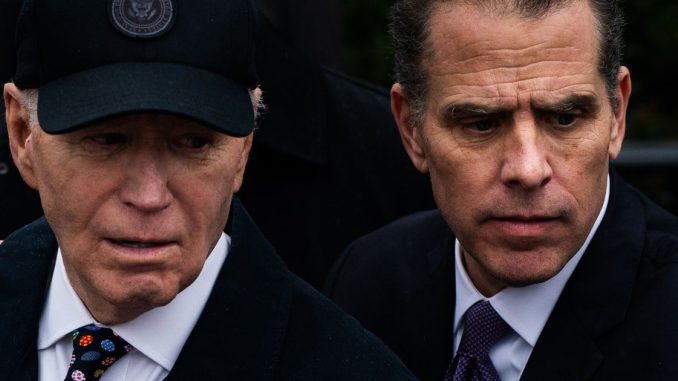
In a surprising legal move, special counsel David Weiss filed a motion in the California federal court where Hunter Biden’s tax case is being conducted, calling on the judge not to dismiss the charges following President Joe Biden’s pardon that was announced on Sunday.
Biden’s pardon covers the period from Jan. 1, 2014 to Dec. 1, 2024. That time frame includes Hunter’s jury-trial convictions in June for lying on a federal form about his drug use when he purchased a handgun. It also covers his September conviction on nine charges related to his failure to pay at least $1.4 million in taxes from 2016 through 2019.
Hunter faced a maximum of 17 years in prison for his tax offenses.
“The charges in his cases came about only after several of my political opponents in Congress instigated them to attack me and oppose my election,” Biden claimed in a statement accompanying his pardon announcement.
In a Monday court filing in a federal district court in California, Weiss wrote, “There was none and never has been any evidence of vindictive or selective prosecution in this case.”
“The defendant [Hunter Biden] made similar baseless accusations in the United States District Court for the District of Delaware. Those claims were also rejected,” he added.
“In total, eleven different [federal] judges appointed by six different presidents, including his father, considered and rejected the defendant’s claims, including his claims for selective and vindictive prosecution.”
New: Special Counsel David Weiss's office opposes Hunter Biden's motion to completely dismiss his indictment based on the pardon.
"The Government does not challenge that the defendant has been the recipient of an act of mercy. But that does not mean the grand jury’s decision to… pic.twitter.com/6gsqzBoC04
— Matt Rice (@matt____rice) December 2, 2024
The special counsel’s office urged the judge not to dismiss the tax charges, but instead just close the docket indicating a pardon had been issued.
This would allow the record to continue to exist.
“[I]t has been the practice of this court that once an Executive Grant of Clemency has been filed on the docket, the docket is marked closed, the disposition entry is updated to reflect the executive grant of clemency, and no further action is taken by the Court,” Weiss wrote. …full story
Follow Elite Feed!

Leave a Reply